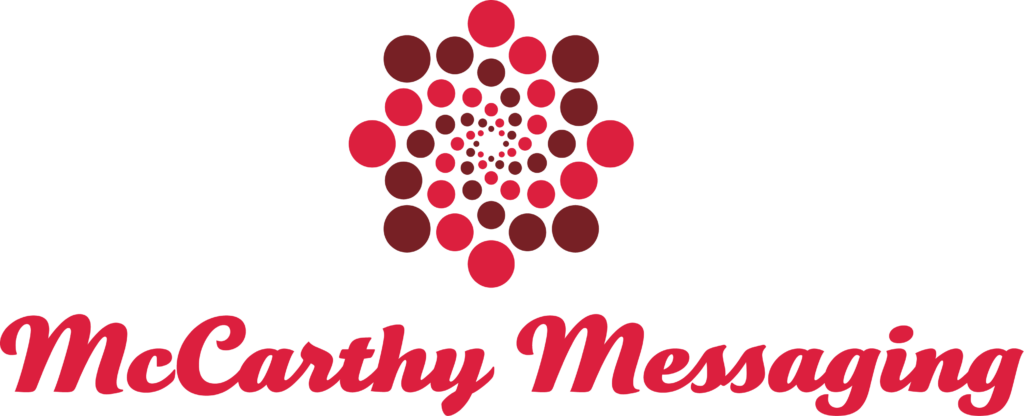Most companies have a compelling story to tell. But, too often, they bury it. They get myopic in how they communicate who they are and what they do.
So how does this sort of bad communication happen to good companies?
Sometimes corporate communicators reject their instincts in order to appease influential leaders entrenched in their own habits or beliefs. The result can be communication riddled with bewildering language or irrelevant details, or a message that’s indistinguishable from your competitors.
Pretty soon, your employees lose clarity. Your clients lose confidence. And you lose the ability to turn prospects into paying customers.
On the flip side, companies that communicate effectively are more likely to report below-average employee turnover. And they produce a 47 percent higher return to shareholders over a five-year period.
Ready to make your communication clearer and more compelling? Read on.
Secret #1: Talk like a human
In a meeting I recently attended, a leader talked about “standing up” his company’s “follow-the-sun model” by “deploying enterprise-oriented human capital assets.” It took me three minutes to make sense of what he had just said. By then, I’d missed the rest of his comments.
We all cringe when we read or hear this kind of corporate-speak. So why do so many organizations allow it to survive, even thrive?
Often, jargon is deeply embedded in a company’s culture or favored by an influential boss. In certain fields, it seems near impossible to get away from it. Avoiding lingo is a special challenge in the healthcare industry, packed with medical terminology and famous for its CPOEs, MACRAs and PHOs.
But obscure language not only confuses your audiences, it chips away at your credibility. That’s because people see it for what it often is: compensation for a lack of substance. Or an attempt to impress, rather than honestly engage.
The next time you’re tempted to write “human capital assets,” go for “employees.” Instead of “synergy,” try “teamwork.” Banishing the buzzword is a first step to better communications.
Here’s the payoff:
When you swap double-talk for plain-talk, communications are more potent because the meaning is clear. Your audiences believe you. Your conversations with clients are more productive because direct language helps them to quickly see what you’re selling and how it solves their problem.
Secret #2: Elevate your message
We’ve all sat through presentations where we’re subjected to an endless string of mind-numbing details. I get it. When you’re passionate about a topic, it can be hard to keep yourself from spilling every bit of knowledge you have.
But getting mired in incidental facts is not only deadening, it doesn’t point your audience to what’s salient. After slogging through mounds of information, each individual is left to decide what’s significant. When the take-away is different to every person, you’ve delivered no message at all.
People don’t remember all the details they hear—they remember what they understand. By emphasizing a few, high-priority ideas, you cue them to what matters most.
Here’s the payoff:
When you lift your message out of the minutiae, employees and customers are more apt to understand, internalize and act on it.
Secret #3: Have the courage to stand out
Copycat messaging feels safe but, in reality, it puts your organization in harm’s way. If you sound like your competitors, why would a prospective customer give you a second look?
Distinctive messaging grabs people’s attention, and signals that you are unique. Fresh ideas and unexpected language cut through the clutter of sameness.
Here’s the payoff:
When you have a differentiating message, leaders and employees are excited to spread your story. Customers seek you out because they recognize that you have something to offer that others don’t. And best of all, they remember you.
A message platform is the 3-in-1 solution
A message platform is a concise, laser-focused document that reflects the highest-order ideas you want your key audiences to consistently hear, believe and internalize. Not a communication itself, the message platform guides your communications. You can use it to solve all three of the above problems at once.
- A message platform provides the direct, compelling language that guides leaders, salespeople and others in communicating about your business, strategy or product.
- It reflects the most important ideas you want to convey, which helps you pull your message out of the weeds and into the sunshine.
- Above all else, a message platform is differentiating. It expresses the attributes that make your company, product or approach better, bolder or distinctive.
It’s time to get out of the details and speak plainly about what makes your company special. Don’t bury your beautiful story! Instead, defeat the three arch-enemies of compelling communication with a clear message platform.
Margie McCarthy is founder of McCarthy Messaging, a strategic messaging firm based in Denver, Colorado. She’s fond of messy challenges, brave clients and vintage jewelry.
We promise: Your strategy session will NOT be a sales pitch. And because we know your time is valuable: If you don’t leave our conversation with one new idea (or if you feel like we’re selling you), we’ll donate $100 to the charity of your choice.
